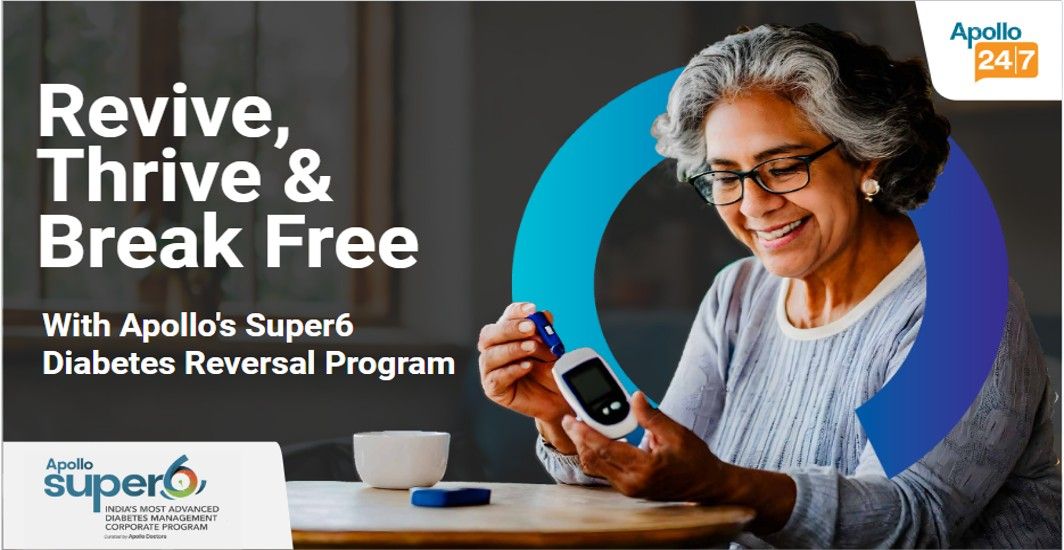Diabetes Management
Monsoon Care for Diabetes: 9 Things Every Diabetic Must Know
2 min read
By Apollo 24|7, Published on - 11 September 2023, Updated on - 14 September 2023
Share this article
0
0 like

Monsoon brings relief from the scorching heat, but for individuals with diabetes, it also introduces unique challenges. The combination of humidity, rain, and fluctuating temperatures can affect blood sugar levels and overall well-being. In this blog, we will discuss some tips for diabetes care during the monsoon season:
1. Monitor Blood Sugar Levels Regularly
Frequent blood sugar monitoring is crucial, especially during the monsoon. Fluctuations in weather can impact insulin sensitivity, so keeping a close eye on your levels will help you make necessary adjustments to your diabetes management plan.
2. Stay Hydrated
Humidity can lead to excessive sweating and dehydration, which can affect blood sugar control. Drink plenty of water throughout the day to stay hydrated.
3. Beware of Contaminated Water
During the monsoon, waterborne diseases are more prevalent. Diabetics should avoid consuming untreated or contaminated water to prevent illness, which can disrupt diabetes management.
4. Choose Seasonal, Low-Glycemic Foods
Opt for seasonal fruits and vegetables, which are not only fresher but can also help regulate blood sugar levels. Focus on low-glycemic foods like
- Leafy greens
- Bitter Gourd
- Cucumber.
5. Maintain Medication Schedule
Stick to your prescribed medication schedule, even on rainy days. Consistency is key in diabetes management.
6. Protect Your Feet
Monsoon puddles and wet surfaces can increase the risk of fungal infections, particularly in the feet. Keep your feet clean, dry, and wear appropriate footwear to prevent infections.
7. Carry Diabetes Essentials
Always carry your diabetes essentials, including glucose tablets or snacks, in case of unexpected delays or emergencies caused by weather-related issues.
8. Be Cautious with Street Food
While enjoying street food during the monsoon can be tempting, be cautious about its cleanliness and its potential impact on blood sugar. Opt for healthier, hygienic options.
9. Seek Medical Advice
If you experience any unusual symptoms or fluctuations in blood sugar levels during the monsoon, consult your healthcare provider promptly for guidance and adjustments to your diabetes management plan.
Conclusion
Monsoon care for individuals with diabetes requires vigilance and adaptation to changing weather conditions. Remember that consistency in diabetes management and being proactive in addressing potential challenges will enable you to enjoy the monsoon while keeping your health in check.
Diabetes Management
Consult Top Diabetologists
View AllLeave Comment
Recommended for you

Diabetes Management
Conquering Diabetes: The Promise of Reversal with Apollo Super 6
Unlock a life free from diabetes worries with Apollo Super 6, Diabetes Reversal Program. Apollo 24/7’s mission is to empower you with the right tools for effective diabetes management techniques, including personalized diet and activity plans, dedicated coaches, and 24/7 support. Enjoy guaranteed HbA1c reduction, weight control, better metabolic health, and reduced medicine dependency. Get your free expert consultation and learn how this transformative care helps you. Try our starter track for just ₹2999 for three months. Join and reclaim your health! Contact: super6@apollo247.org | +917569034758.

Diabetes Management
Keeping an Eye on Diabetic Retinopathy
Diabetic retinopathy is a complication arising from uncontrolled blood sugar levels. The increased blood glucose levels damage the blood vessels in the retina. It progresses through stages: background retinopathy (micro-aneurysms), and proliferative retinopathy (abnormal blood vessel growth and vision loss). Regular screenings and lifestyle modifications can help prevent or manage diabetic retinopathy.
%20(2).jpg?tr=q-80)
Diabetes Management
High-Fibre Foods for Diabetic Individuals
Diabetes management need not be daunting. Incorporating high-fibre foods into your diet can help effectively manage blood sugar levels. Consider enrolling in a personalised diabetes management programme such as Apollo’s Super 6 for better support and guidance on effectively managing diabetes.
Subscribe
Sign up for our free Health Library Daily Newsletter
Get doctor-approved health tips, news, and more.
Visual Stories

8 Fruits That are Incredibly Healthy for Diabetes
Tap to continue exploring
Recommended for you

Diabetes Management
Conquering Diabetes: The Promise of Reversal with Apollo Super 6
Unlock a life free from diabetes worries with Apollo Super 6, Diabetes Reversal Program. Apollo 24/7’s mission is to empower you with the right tools for effective diabetes management techniques, including personalized diet and activity plans, dedicated coaches, and 24/7 support. Enjoy guaranteed HbA1c reduction, weight control, better metabolic health, and reduced medicine dependency. Get your free expert consultation and learn how this transformative care helps you. Try our starter track for just ₹2999 for three months. Join and reclaim your health! Contact: super6@apollo247.org | +917569034758.

Diabetes Management
Keeping an Eye on Diabetic Retinopathy
Diabetic retinopathy is a complication arising from uncontrolled blood sugar levels. The increased blood glucose levels damage the blood vessels in the retina. It progresses through stages: background retinopathy (micro-aneurysms), and proliferative retinopathy (abnormal blood vessel growth and vision loss). Regular screenings and lifestyle modifications can help prevent or manage diabetic retinopathy.
%20(2).jpg?tr=q-80)
Diabetes Management
High-Fibre Foods for Diabetic Individuals
Diabetes management need not be daunting. Incorporating high-fibre foods into your diet can help effectively manage blood sugar levels. Consider enrolling in a personalised diabetes management programme such as Apollo’s Super 6 for better support and guidance on effectively managing diabetes.



